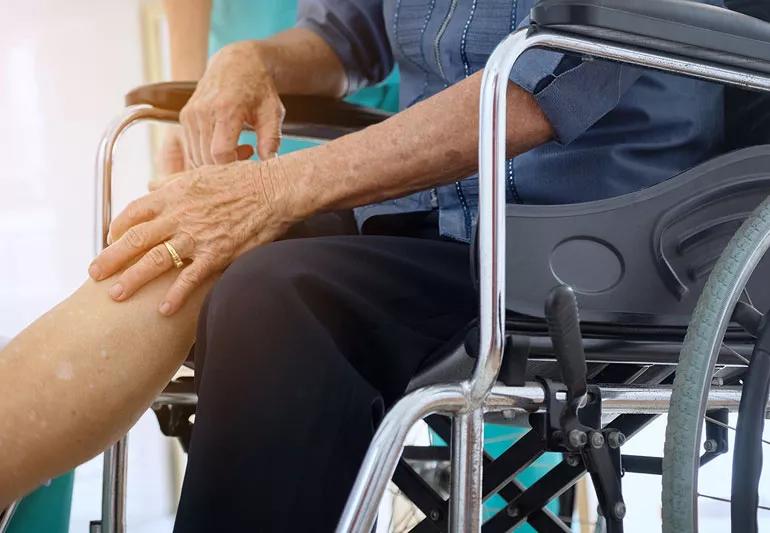The short answer from an orthopedic surgeon

Image content: This image is available to view online.
View image online (https://assets.clevelandclinic.org/transform/b09b8b80-eff3-4697-ac7a-b5629a8ea6f4/kneeReplacementPain-945152742-770x553_jpg)
Woman with pain after knee replacement surgery
A: Recovery from surgery can take several months, so it’s not unusual to still have soreness in the knee that was replaced. As the intensity of rehabilitation exercises increases, more strain is put on the muscles and joints that have not been used in a period of time. Stick with the routine of exercises that were prescribed by a physical therapist. Though bending and stretching the knee may hurt at first, re-training the body to move normally will help with recovery in the long run.
Advertisement
Cleveland Clinic is a non-profit academic medical center. Advertising on our site helps support our mission. We do not endorse non-Cleveland Clinic products or services. Policy
In addition, postoperative swelling is often a major source of pain for patients. Pain in the knee following the operation can last from six months to as long as one year, but don’t get discouraged. Once fully healed, knee replacement surgery will help provide pain relief and improved function long-term.
—Orthopedic surgeon Robert Molloy, MD
This article is adapted from Cleveland Clinic Arthritis Advisor.
Advertisement

Sign up for our Health Essentials emails for expert guidance on nutrition, fitness, sleep, skin care and more.
Learn more about our editorial process.
Advertisement
Understand this alternative to a total knee replacement
Hip and knee replacements are among the most successful and satisfying
Plus, tips on how to recover
Traditional surgery has advantages, same overall benefits
An orthopaedic surgeon outlines the alternatives
Most recommended precautions center around minimizing bruising or swelling
Even one drink can have an impact on your cognitive function leading to slurred speech, blurred vision and impaired memory
Type 2 diabetes isn’t inevitable with these dietary changes
Applying a hot or cold compress can help with pain
Pump up your iron intake with foods like tuna, tofu and turkey